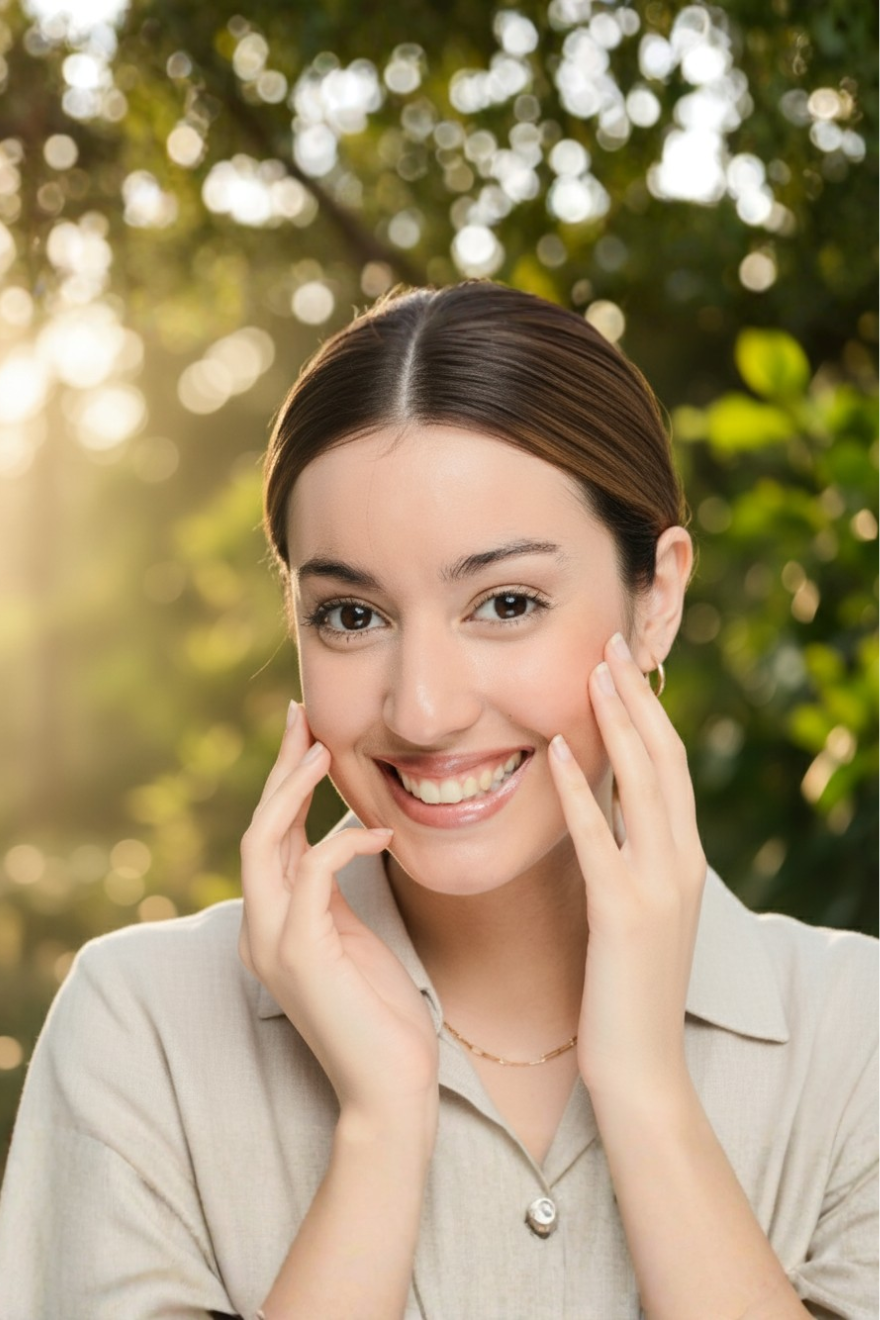Can Vitamin C Serum Really Help Me Get Rid of My Dark Circles?

Vitamin C, also known as L-Ascorbic acid, is well known in the skincare world due to its numerous benefits. For ages, it has been incorporated into skincare regimes and diets by folks from different regions of the world. It helps achieve even skin tone, reduces pigmentation, reduces dark circles, heals skin, fades dark spots, etc.
Containing a high number of antioxidants, Vitamin C protects the skin from oxidative damage, UV rays, and free radicals present in the air molecules. Some of the most common and natural sources of vitamin C are lemons, oranges, papaya, Kakadu plum, tomato, etc.
Massaging Vitamin C serum under the eyes boosts collagen, increases skin elasticity and blood circulation, and hence helps in reducing the appearance of dark circles. Read on for everything you need to know about Vitamin C’s role in reducing dark circles.
What Is Vitamin C Serum? How Is It Effective in Reducing Dark Circles?

Vitamin C serum is a concentrated form of Vitamin C that is safe for skin and helps in reducing pigmentation, boosts collagen production, reduces dark circles, and prevents sun damage, one of the primary causes of dark circles. These serums are nothing but concentrated, lightweight, easily absorbed oil or water-based potions used to treat specific skin concerns.
With the ever-changing world, late night shifts, etc., many individuals suffer from insomnia, which contributes to an increasing concern for dark circles. A healthy eye brightens up the face and signifies a healthy lifestyle.
Due to the lack of underlying fat & sebaceous glands, the thin & fragile skin around the eye is prone to dryness, sagging, and fine wrinkles. All these factors contribute to the appearance of dark circles.
One of the most effective ways to treat dark circles is to include a Vitamin C serum in your skincare routine. When looking for Vitamin C serums, always go for serums that contain 10%-20% of Vitamin C in the form of a more stable & potent Sodium Ascorbyl Phosphate or SAP. Besides SAP, ascorbic acid, ascorbic palmitate, etc., are also safe forms of Vitamin C.
The purest form of vitamin C is very unstable and irritable to the skin, often losing its efficiency when exposed to light or air. But thanks to modern science, more stable and skin-friendly forms of vitamins are available on the market (packed in dark-colored bottles to prevent oxidation of Vitamin C).
Vitamin C Serum in Your Skincare Regime
As a best practice for skin care, always cleanse your face thoroughly, tone, serum, and then moisturize. You should take one to two drops of vitamin C serum and massage gently around the under eyes for best results.
The best part is it can be incorporated into daytime or nighttime skincare regime. You can pair it with a hyaluronic acid serum/ moisturizer for more healthy and plump-looking skin.
Things to Remember
- Even though Vitamin C is safe for most skin types, always do a patch test before applying it directly to the skin to check for any reaction.
- Vitamin C serum can lose its efficacy in the presence of oxygen and sun exposure. So, store it in a cool dry place, and in the case of dropper bottles ensure you close the lid tightly after every use.
- Vitamin C ideally should not be paired with AHAs, BHAs, or retinolas it may irritate your skin. Check for the ingredients of the product in your current skincare regime.
Potential side effects
Although it is safe for most skin types, people with hypersensitive skin may experience some side effects such as slight irritation, tingling sensation, itching, redness, and, in some cases, breakouts too. In case of unusual discomfort, we recommend you consult a dermatologist immediately.
Common Myths
There are lots of myths regarding vitamin C serums. Let's debunk some:
- All vitamin C available in the market is the same- It comes in various forms like L-ascorbic acid, Ethyl ascorbic acid (EAA), etc., which are more stable and just as effective.
- The more the concentration, the more effective it is- These serums work well when used in a particular ratio with other ingredients. When starting out, you can get a 5–10% solution and apply it thrice a week to try.
- You can become resistant to it- Not true! Several research studies found Vitamin C to be extremely effective in skin care.
- It is suitable for nighttime routines only- This is untrue as Vitamin C serum can also be used in the daytime (just give it some time to get absorbed before moving out).
- Vitamin C is not for sensitive skin- it is suitable for all skin types.
Is Vitamin C Serum the Only Way to Reduce Dark Circles? What Are Its Alternatives?
Usually, dark circles are treated well with vitamin C serums, but sometimes they can occasionally develop for a variety of reasons or may even run in the family.
- A healthy lifestyle, balanced diet, and proper hydration are all good places to start.
- If the dark circles are not so prominent, try applying cold (used) green tea bags or ice to reduce puffiness and under-eye relaxation.
- If nothing seems to work out, consult a dermatologist for in-person expert guidance.
About Life and Pursuits
As you can see, Vitamin C serum works well to reduce dark circles when used properly. Consistency is the way to maximize results, so you should choose a skincare routine and time that makes sense to you.
When talking about vitamin C, Life & Pursuits’ Organic Lemon Essential Oil (which contains a good amount of Vitamin C) is a must-try. Include this in your skincare routine by mixing it with skincare products to see reduced signs of aging, and balanced skin with a bright complexion.
We, at Life & Pursuits provide safe, vegan, and cruelty-free products to achieve naturally flawless skin. Our products don’t have parabens, sulfates, synthetic fragrances, colors, or mineral oils in them. So you can rest easy that when you use this product on your face, you're using organic components that have been carefully chosen.











